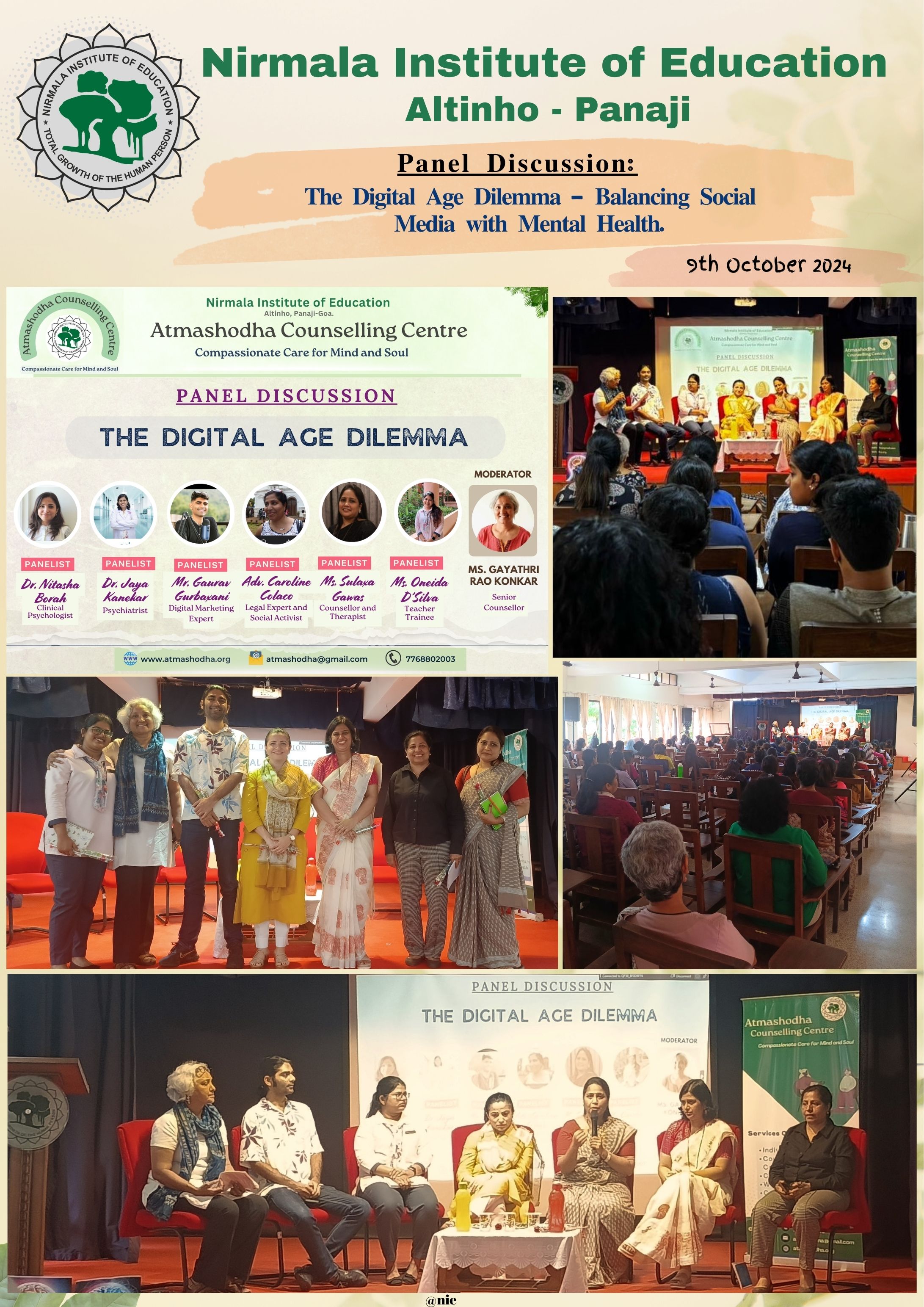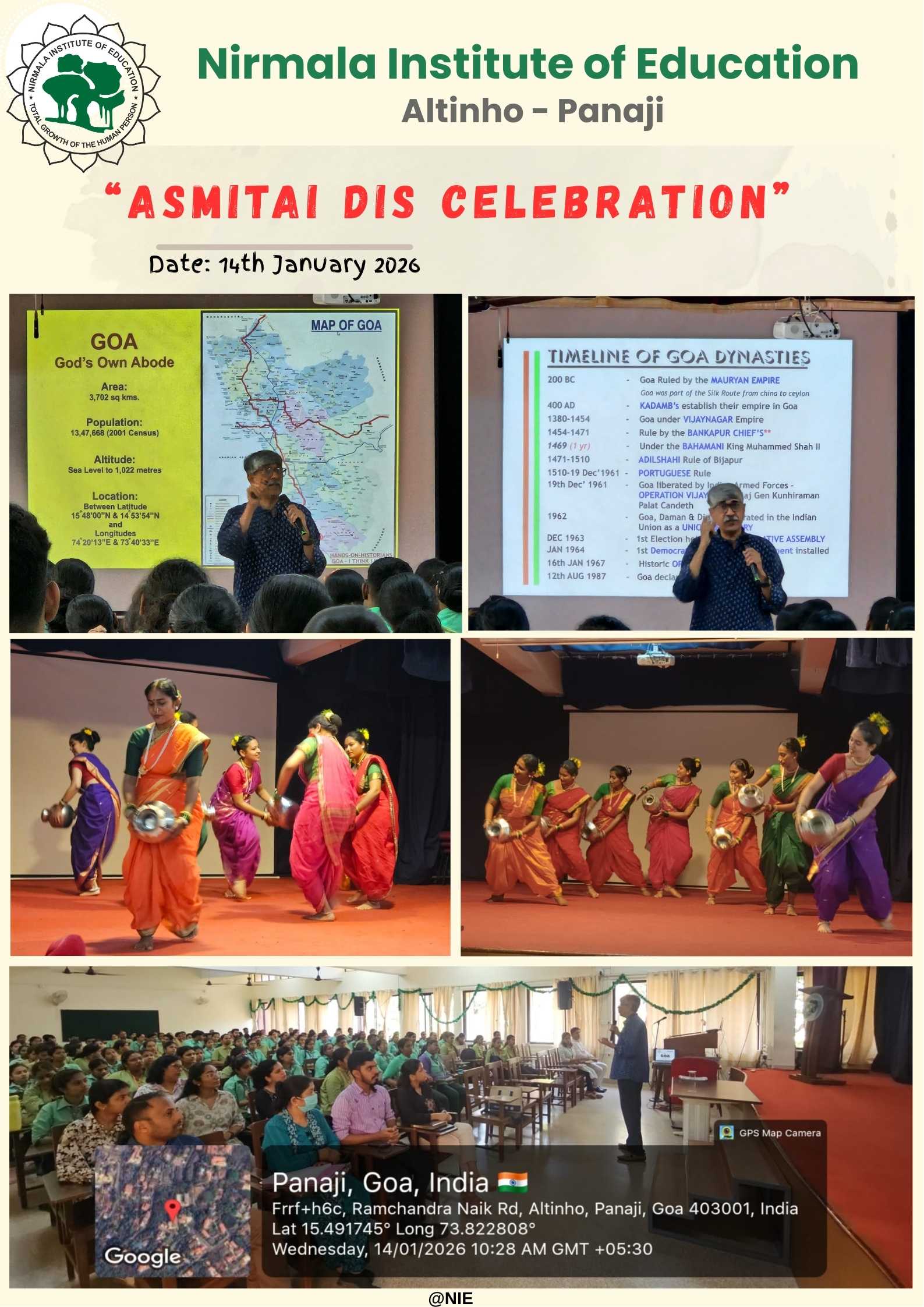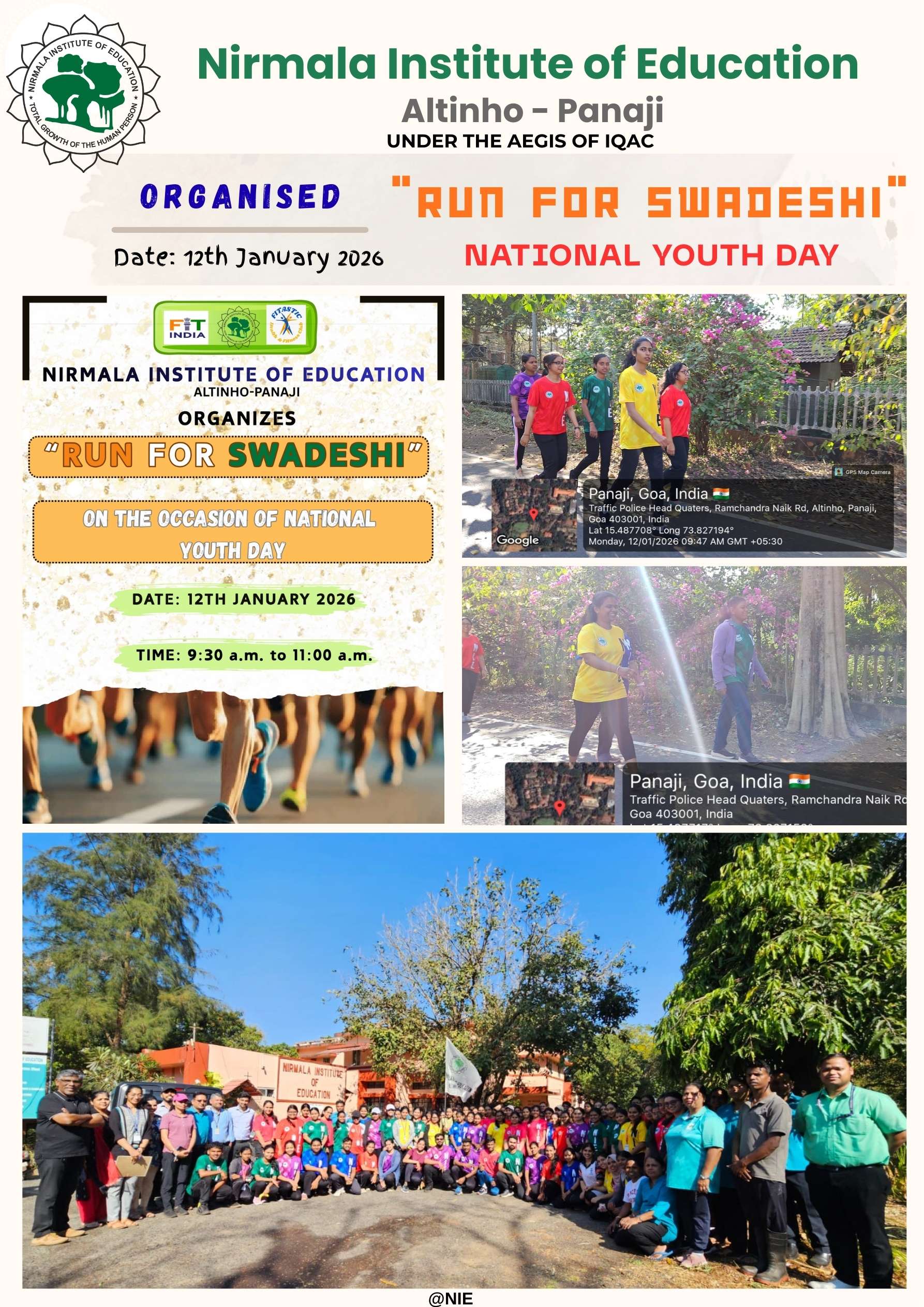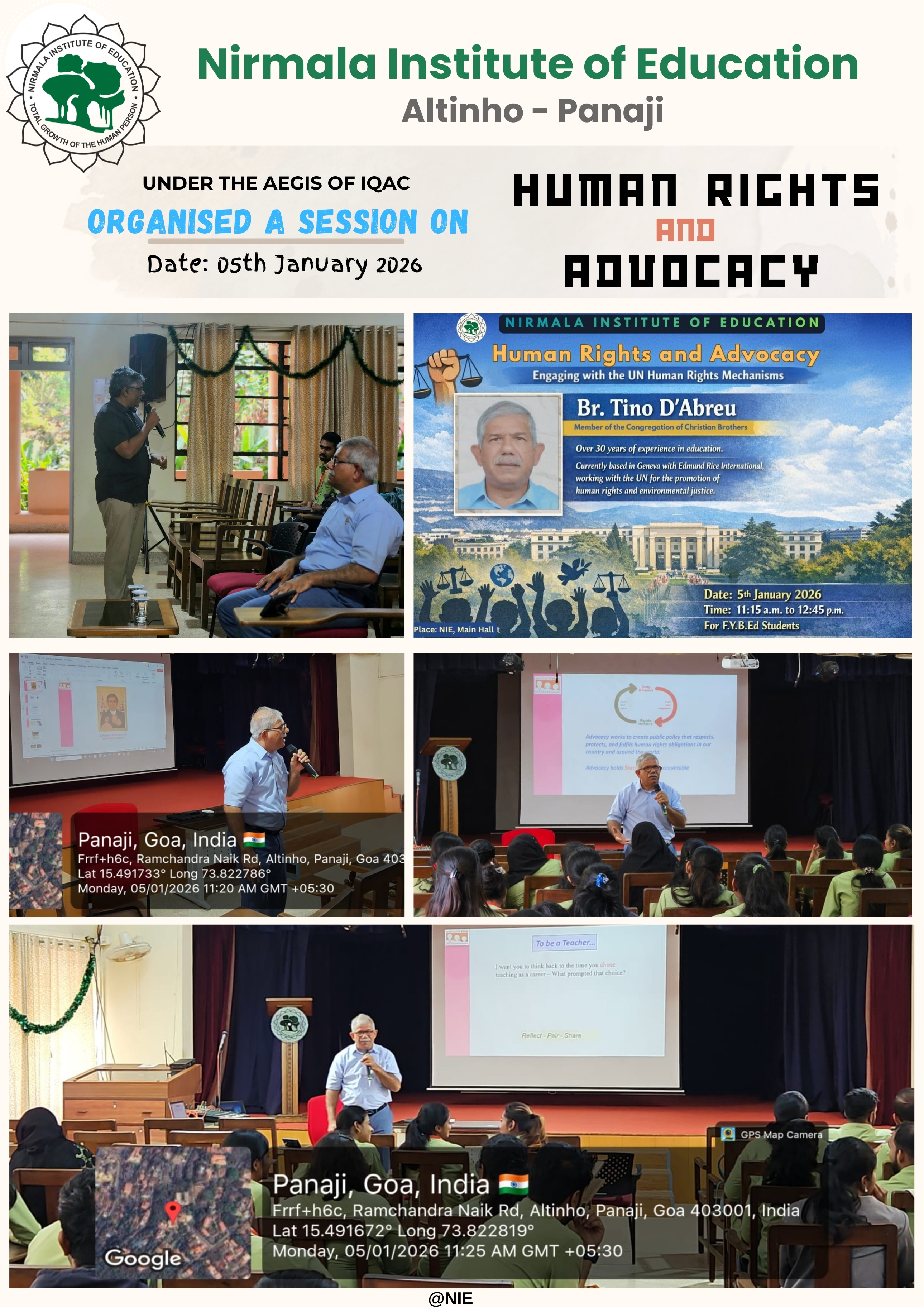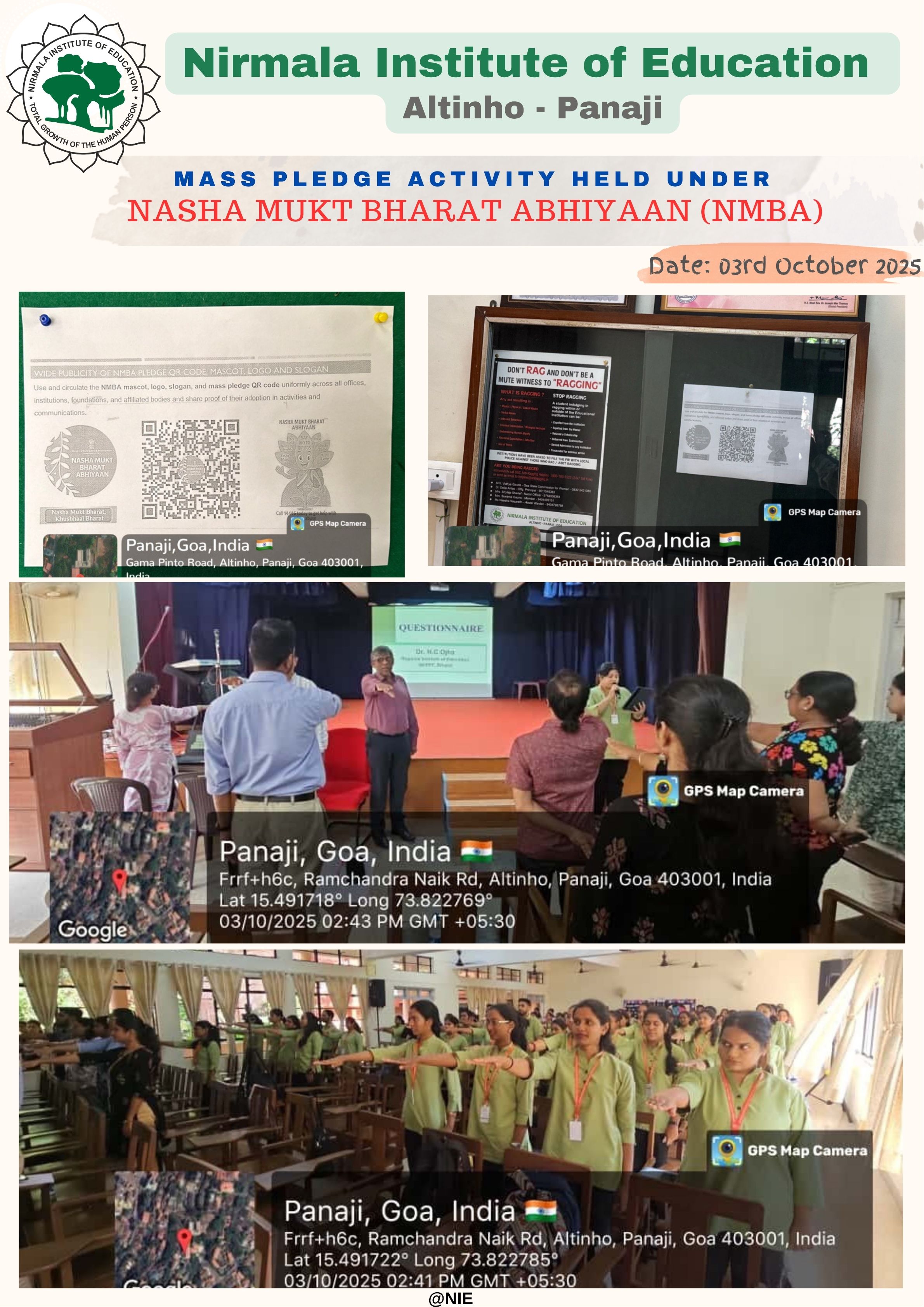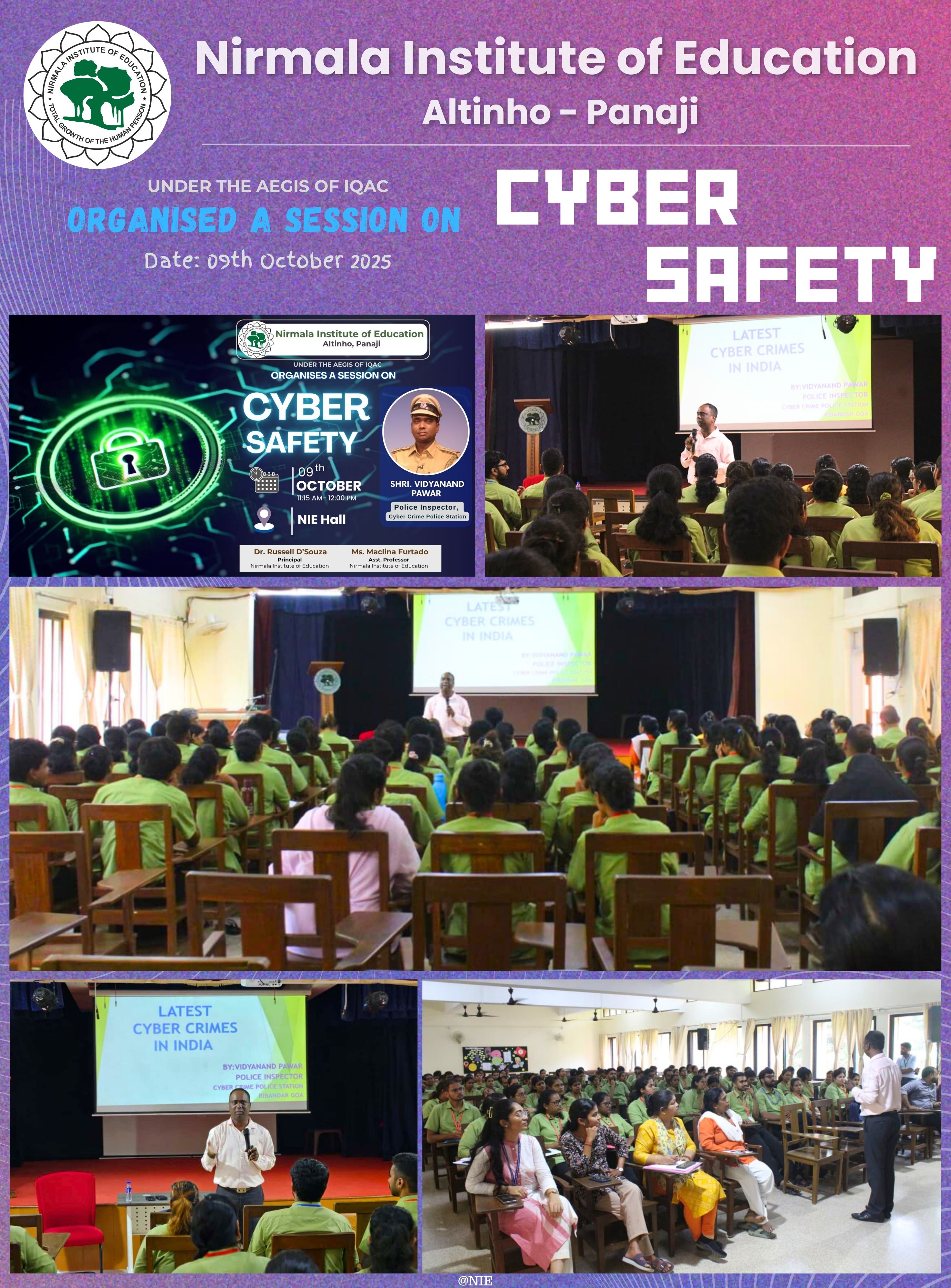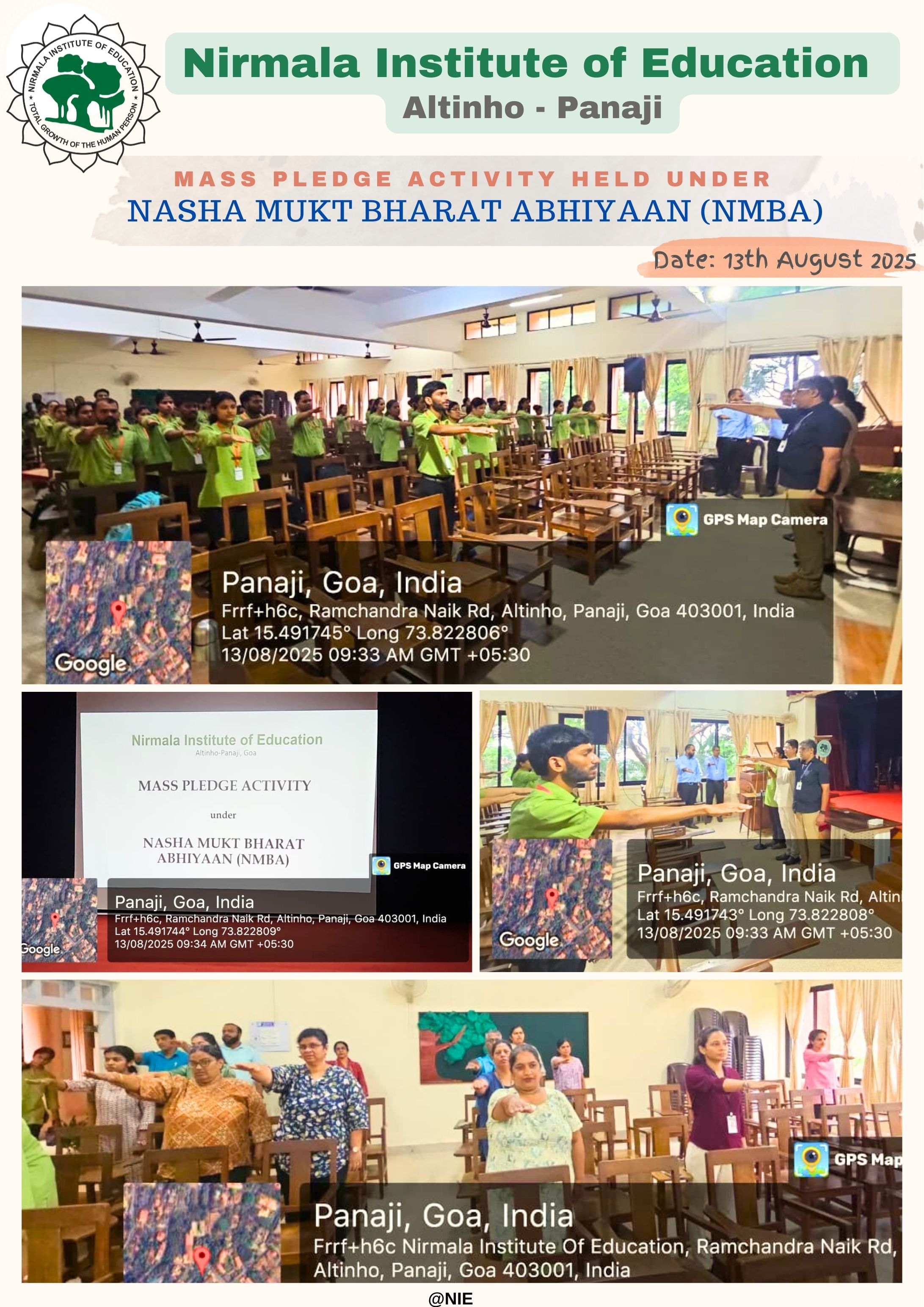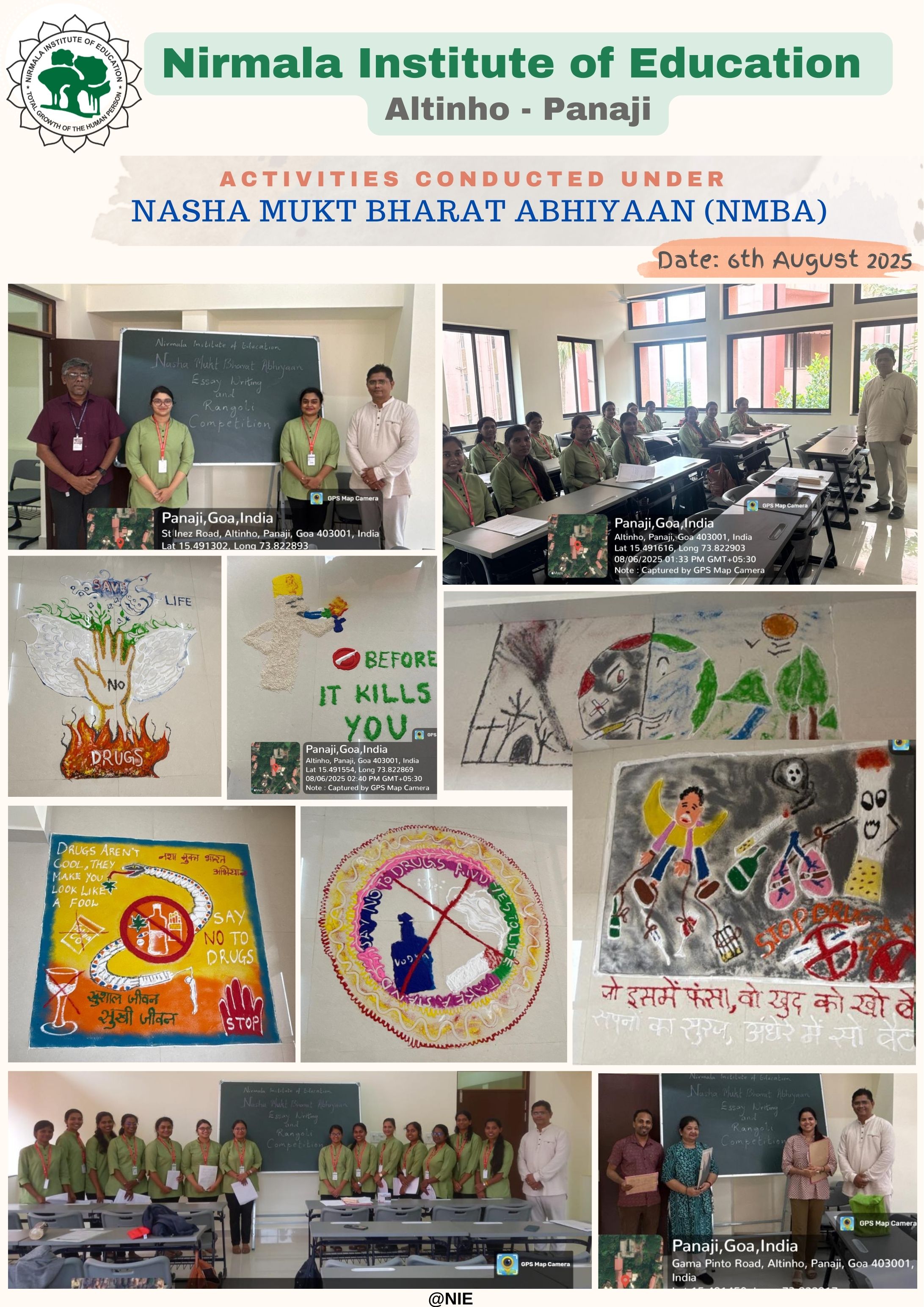Goy Asmitai Dis, commemorating the historic 1967 Opinion Poll in Goa, was celebrated at Nirmala Institute of Education on 14 January 2026. As part of the celebration, Dr. Russell D’Souza, Principal of Nirmala Institute of Education, addressed the gathering, followed by an insightful session by the renowned speaker and historian, Mr. Sanjeev V. Sardesai.
Panel Discussion - The Digital Age Dilemma – Balancing Social Media with Mental Health
The Atmashodha Counseling Centre at Nirmala Institute organised a Panel Discussion - The Digital Age Dilemma – Balancing Social Media with Mental Health. A diverse panel of experts gathered on 9th October 2024 to explore the complex relationship between social media and mental health - the panel had professionals from social media, psychology, psychiatry, law and included a student who shared the youth perspective
Gaurav Gurbaxani, Digital Marketing Expert, emphasized the necessity of an online presence for businesses, stating, "If you are not on social media, you don't exist." He highlighted the importance of personal responsibility in social media consumption, advising attendees to "be a smart creator rather than a foolish consumer" and to focus on the quality of their connections instead of follower counts.
Oneida D'Silva, a D.El.Ed. Teacher Trainee at Nirmala Institute of Education, noted that "90% of all learning material is on the net," underlining social media's role in addressing topics that are otherwise never discussed in the home or schools like LGBTQIA awareness. She voiced concerns about aimless scrolling and cyberbullying where at times the bully is anonymous and cannot be confronted. She urged her peers to take responsibility and choose to think carefully and be kind in online interactions while cautioning against comparisons that can harm self-esteem.
Dr. Nitasha Bohra, Clinical Psychologist, emphasized that social media consumption shapes our identity, values, self-perceptions and body image. She discussed how social comparison leads to unfair assumptions about others' happiness, particularly impacting those with low self-esteem. Highlighting the prevalence of altered images, she raised the crucial question: if adults struggle to discern reality, how can we expect children to? Recognizing social media's impact on mental well-being is essential.
Ms. Sulaxa Gawas, Therapist & Counsellor, addressed academic challenges, focusing on attention span and creativity. She noted that students struggle to maintain focus post-COVID, with a decline in natural creativity due to reliance on online solutions. She pointed to the recent Microsoft outage that affected children’s school work and projects illustrating this issue. She stressed the need for parents to serve as positive role models.
Dr. Jaiprada Kanekar, Psychiatrist, highlighted the importance of human connection, noting that while technology appears to facilitate constant communication, it often replaces meaningful conversations. She said that we are losing skills that makes us humans like language skills. She pointed out the dramatic expansion of social comparison, exposing individuals to judgments from strangers worldwide. Addressing screen addiction in teens, she questioned why society perceives screen time as harmless compared to cigarette addiction, concluding with, "How soon is too soon to give your child a smartphone?"
Advocate Caroline Colaco discussed the benefits of technology in law, such as online access to Supreme Court judgments that simplify legal research. She noted how smartphones enable victims to document injustices, but expressed concern about children not understanding the consequences of their online actions, citing serious repercussions for inappropriate posts. She also mentioned tightening of laws around pornography and emphasized the need for vigilance.
During the Q&A, a counselling trainee asked the panel for a response to a young child asking AI, "What to think in a particular situation", as it had caused her to be alarmed. The panellists stressed the importance of reliable sources and agreed that parents should be the first point of contact for such queries, requiring strong connections with their children. As children often assume AI provides accurate information, parents need to be knowledgeable about the apps their children use. In addition, Emphasized that modelling responsible phone usage is crucial.
Ms. Gayatri Konkar, the moderator of the discussion, a counsellor herself, concluded the discussion with an anecdote illustrating the need to check authenticity and reliability of social media content, recounting how a comedian Chris Duffy created a fake profile and managed to pose as the CEO of LinkedIn on the LinkedIn platform itself for a whole year, even receiving congratulatory messages!
The students, teachers and counsellors in the audiences found the panel discussion very thought provoking and expressed the hope that they would be more critical, responsible and informed users of social media.
